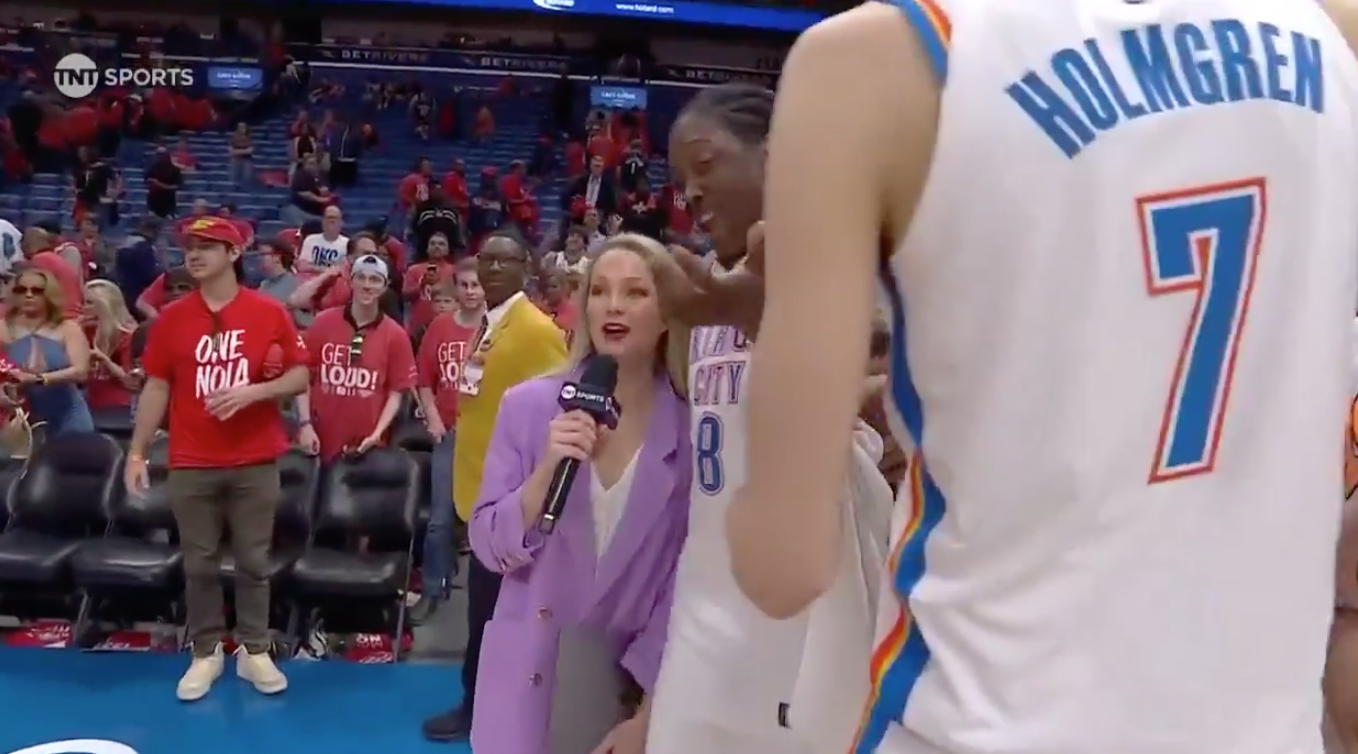Merit (Sonequa Martin-Green) is an Afghanistan war veteran who has a particular routine of getting up every morning and going for a run. On these runs, flashbacks of her time in service flood her mind — a specific one sticks out with her best friend Zoe (Natalie Morales) playing Rihanna’s ‘Umbrella’ in a Humvee with an iPod on its last legs. It’s a beautiful memory, but you can’t help but wonder what exactly Merit is running from or what immense, invincible weight she carries. Zoe is right with her, making jokes and wisecracking about certain decisions in her Portland, Oregon home tucked away in a corner. It’s then we find out in director Kyle Hausmann-Stokes’s feature that Zoe is actually dead and an amalgamation of survivor’s guilt and PTSD running rampant in Merit’s heart and might.
There’s no question that veterans face an absolute mountain of adversity when it comes to the horrors they see through the lens of combat and then returning home in trying to adjust their brains with their sense of normalcy forever changed. My Dead Friend Zoe, also executed produced by Kansas City Chiefs Tight End Travis Kelce, approaches this aspect from different viewpoints — one from a specific character and another from different generations.
Drawing from his experience serving five years as a paratrooper, Hausmann-Stokes, with co-writer AJ Bermudez, provides this film with a personal touch that makes this experience feel like these characters are in our community. Merit’s post-service life isn’t exactly rosy, as an incident of anger has made group therapy a mandatory part of her life. It’s there where she’s reluctant to share anything bothering her, much to the dismay of counselor Dr. Cole (played by Morgan Freeman). He gives her a choice: open up, or he won’t sign off on the necessary paperwork to give her the all-clear. This is with Zoe as a voice in the background, telling Merit she doesn’t need this. What Hausmann-Stokes is playing with is using Morales’s character as a barrier to Merit’s inability to forgive herself for whatever happened to Zoe.
Martin-Green and Morales’s banter works, and you can see why they were so close through their sporadic use of flashbacks throughout their service together. While Zoe’s specter takes on a completely different form in the present day, the film strives to provide her with an entire arc of what she was afraid of.
If fighting a war gives you purpose, what happens when no battle is left to fight? Is it possible to turn that switch off when you come back home? Hausmann-Stokes provides that question to ponder as well. In addition to her inner struggle, Merit has choices concerning family, or, in this case, being the caretaker for her grandfather Dale (Ed Harris). Long retired from his active service, Dale is battling with the early stages of Alzheimer’s and the death of his wife/Merit’s grandmother. There’s an overture to put Dale in a nursing home, but the beautiful countryside of his extensive home also serves as a mode of comfort and routine for him.
Harris’s acting exquisitely portrays a thorny, sometimes vulnerable older man trying to make sense of what life is now that he has lost (and could potentially lose) the pillars of his life. It’s something he and Martin-Green come together to expound upon with their characters; they both go through different learning experiences.
When a potential love interest with a manager in a hard-to-get-into assisted living facility (played by Utkarsh Ambudkar) started to form for Merit begins to form, that’s where the collision of emotional words starts to fight with one another. My Dead Friend Zoe keeps the details of the title character’s death close to its chest in a prolonged cadence. However, it amounts to a crescendo you might not expect and is a bit more realistic to the amount of heaviness Merit is trying to outrun.
Ultimately, the film has to juggle its main concepts and, in the end, figure out the best way for them to have a satisfying conclusion. How the narrative has to keep Zoe’s character around to ensure she’s not forgotten is not necessarily clean — but neither is the process of trying to heal from a traumatic event. Hausmann-Stokes’s interest lies in the before and after; sometimes, dealing with the look of scar tissue and how it got there is the most painstaking process.







